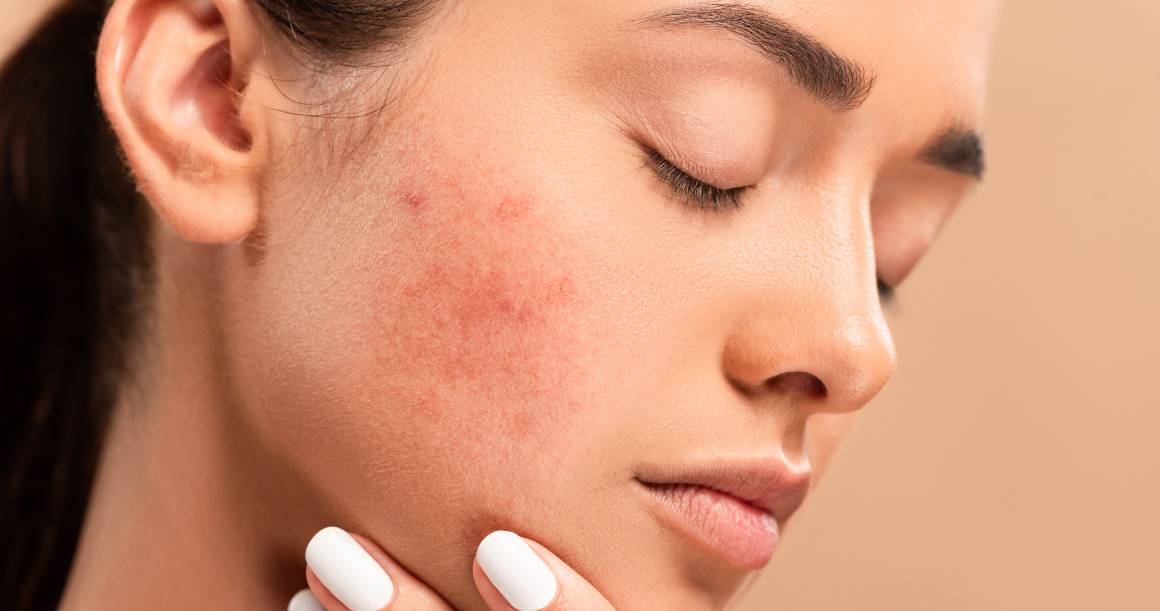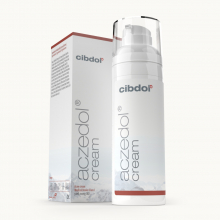What Kills Acne Bacteria?
Published:
Are you struggling with acne? Those pesky pimples can be annoying and painful. But you're not alone! Acne is one of the most common skin conditions, affecting about 85% of people in their teens and 20s.
Contents:
- Benzoyl Peroxide
- Salicylic Acid
- Retinoids
- Tea Tree Oil
- Oral Antibiotics
- Blue Light Therapy
- The Takeaway
- Frequently Asked Questions: What Kills Acne Bacteria?
- What is the bacteria that causes acne?
- How do you kill acne bacteria?
- What is the best face wash for acne bacteria?
- How do you kill acne bacteria naturally?
- When should you see a dermatologist for acne?
- How long does it take to get rid of acne bacteria?
- What's the best way to prevent future acne breakouts?
The key to clearing acne is understanding what causes it in the first place. Acne forms when dead skin cells, oil, and bacteria clog your pores. This leads to inflammation and breakouts. So killing off acne-causing bacteria is crucial for getting rid of pimples.

But how do you do that? Here, we'll explore the top solutions for killing acne bacteria and restoring your skin's health.
Benzoyl Peroxide
Benzoyl peroxide is one of the most popular acne medications. It works by reducing oil production and killing acne bacteria.
How does benzoyl peroxide kill bacteria? It releases oxygen, which creates a hostile environment for the bacteria. They simply cannot survive being exposed to oxygen.
Studies show that benzoyl peroxide kills over 90% of P. acnes bacteria, one of the main culprits behind acne breakouts. It's effective against mild, moderate and even severe acne.
Benzoyl peroxide comes in different concentrations, typically between 2.5%-10%. Lower concentrations around 2.5% can be just as effective as higher doses but with less side effects like dryness and peeling.
So benzoyl peroxide is an excellent option for getting rid of the bacteria behind your breakouts. Just be sure to start slow with a lower concentration to allow your skin to adjust.
Have you tried benzoyl peroxide? Did you find it helpful for clearing up acne-causing bacteria? Let me know in the comments!
Salicylic Acid
Another go-to acne treatment is salicylic acid. It's a beta hydroxy acid that exfoliates dead skin cells and penetrates deep inside pores.
In addition to unclogging pores, salicylic acid has antimicrobial properties. This allows it to kill bacteria responsible for acne breakouts.
Studies demonstrate that salicylic acid is effective at reducing P. acnes bacteria on the skin. And using salicylic acid regularly can help prevent new pimples from forming.
Salicylic acid is ideal for treating mild to moderate inflammatory acne. It works on whiteheads, blackheads, pustules and papules. Like benzoyl peroxide, start with lower concentrations around 0.5% to avoid dryness and irritation.
Using salicylic acid cleansers, toners, masks and spot treatments helps destroy acne-causing bacteria for clearer skin. Have you tried salicylic acid products? Share your experience in the comments below!
Retinoids
Retinoids are vitamin A derivatives that are highly effective for acne treatment. They work by unplugging blocked pores, decreasing oil, and reducing inflammation.
But research also shows that retinoids have antimicrobial properties to kill acne bacteria. Both tretinoin and adapalene are prescription retinoids proven to be antibacterial against P. acnes.
In fact, one study found that adapalene gel decreased P. acnes counts by 95% after 3 months of use!
So prescription retinoids can be a powerful tool to combat acne bacteria deep within the skin. This helps prevent new breakouts and allows skin to heal.
However, retinoids can cause irritation, peeling and sun sensitivity when starting out. Going slow by applying every 2-3 days can minimize side effects. Have you tried prescription retinoids before? Let me know your experience in the comments!
Tea Tree Oil
If you prefer natural remedies, tea tree oil is effective at destroying acne bacteria. It contains active compounds like terpinen-4-ol that give tea tree oil its antimicrobial power.
Studies demonstrate that 5% tea tree oil gel significantly reduces P. acnes bacteria on the skin. In fact, its antibacterial activity is comparable to benzoyl peroxide!
On top of killing acne bacteria, tea tree oil also reduces inflammation and unplugs blocked pores. This makes it a versatile treatment for all types of pimples.
Just be sure to dilute tea tree oil with a carrier oil before applying to avoid irritation. You can also find pre-diluted tea tree oil products for easy use.
Have you used tea tree oil for your acne before? Share your favorite products in the comments!
Oral Antibiotics
For moderate to severe inflammatory acne, oral antibiotics are often prescribed. Antibiotics work from the inside out to kill acne-causing bacteria and reduce inflammation.
The most commonly prescribed antibiotics for acne are:
- Tetracyclines like doxycycline and minocycline. These have direct antimicrobial activity against P. acnes.
- Macrolides like erythromycin. While resistance has increased, erythromycin still reduces P. acnes counts.
- Trimethoprim-sulfamethoxazole. This targets the growth and metabolism of bacteria.
Oral antibiotics are very effective at killing acne bacteria and can lead to significant improvement in breakouts. However, antibiotic resistance is a concern with long-term use. Be sure to work with your dermatologist to determine if oral antibiotics are right for your acne.
Blue Light Therapy
Blue light therapy is an exciting acne treatment that kills bacteria with light. Blue light wavelengths target and destroy P. acnes bacteria on the skin.
Multiple studies demonstrate blue LED light therapy significantly reduces acne lesions and P. acnes counts. After 2-4 weeks of treatment, blue light reduces acne by 60% to 70% on average!
Blue light therapy is a painless, non-invasive treatment with no side effects. Most devices are handheld wands that are easy to use at home. Blue light helps kill bacteria behind breakouts without drugs.
The one downside is that blue light only penetrates the superficial layers of skin. So it works best for mild to moderate inflammatory acne. Have you tried blue light therapy? Share your thoughts below!
The Takeaway
Killing the P. acnes bacteria responsible for acne is key to clearing your skin. Topical treatments like benzoyl peroxide, salicylic acid and tea tree oil destroy acne bacteria on the surface.
While oral and topical antibiotics and blue light therapy work from the inside out and deep within pores to target bacteria. Combining treatments usually yields the best results.
Work with a dermatologist to create a customized acne treatment plan. By attacking acne bacteria from all angles, you can finally achieve clear and healthy skin!
What's your go-to for killing acne bacteria? Have any products worked miracles for your skin? Share your best tips and advice in the comments below!
Frequently Asked Questions: What Kills Acne Bacteria?
Acne is caused by a variety of factors, but acne-causing bacteria play a major role. Killing off these bacteria can help treat breakouts and prevent new pimples from forming. Below we answer some common questions about how to destroy acne bacteria for clearer skin.
What is the bacteria that causes acne?
The most common acne-causing bacteria is Propionibacterium acnes, also called P. acnes. This naturally occurs on everyone's skin, but some people have an overgrowth which leads to inflammation and breakouts.
How do you kill acne bacteria?
There are many methods to kill acne bacteria, including:
- Benzoyl peroxide - releases oxygen to create a hostile environment for bacteria
- Salicylic acid - has antimicrobial properties to reduce bacteria
- Retinoids - have antibacterial effects, especially adapalene and tretinoin
- Tea tree oil - contains antibacterial compounds like terpinen-4-ol
- Oral antibiotics - work systemically to destroy acne bacteria
- Blue light therapy - blue wavelengths target and kill p. acnes
Combining topical and systemic treatments works best to fully eliminate acne bacteria.
What is the best face wash for acne bacteria?
Look for acne face washes containing benzoyl peroxide or salicylic acid. Start with lower concentrations like 2.5% benzoyl peroxide or 0.5% salicylic acid to avoid dryness and irritation. Cerave and Cetaphil make great gentle cleansers with added acne fighters.
How do you kill acne bacteria naturally?
Some of the best natural options to kill acne bacteria include:
- Tea tree oil - dilute before applying to skin
- Apple cider vinegar - use as a toner to restore skin's pH
- Honey - has antimicrobial properties to fight bacteria
- Aloe vera - reduces inflammation and swelling
- Spot treat with crushed garlic - antibacterial and antimicrobial
When should you see a dermatologist for acne?
See a dermatologist for acne if:
- Over-the-counter products haven't improved breakouts after 2 months
- You have large, painful nodules and cysts
- Acne is leaving scars or dark spots
- Breakouts are causing emotional distress
A dermatologist can assess your acne severity and prescribe stronger treatments like oral antibiotics or prescription retinoids to kill acne bacteria.
How long does it take to get rid of acne bacteria?
With consistent treatment, most people see a reduction in acne bacteria and breakouts after 6-8 weeks. Severe cases may take 3-4 months to fully clear acne bacteria. Patience is key as it takes time to address the root causes.
Sticking with your treatment regimen is crucial to successfully destroy acne bacteria for clear, healthy skin. Don't hesitate to adjust products with your dermatologist if you are not seeing results. Finding the right antibacterial routine for your skin takes some trial and error.
What's the best way to prevent future acne breakouts?
To prevent acne long-term after clearing your skin, continue using antibacterial ingredients like benzoyl peroxide or salicylic acid. Maintain a simple skincare routine that won't clog pores. Exfoliate 2-3 times a week to keep dead skin from building up. And avoid touching or picking at your face to minimize bacteria transfer.
With the right antibacterial treatment plan, you can defeat your acne woes for good! Let me know if you have any other questions in the comments below!















